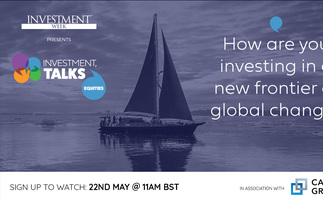INDUSTRY VOICE: For over a year Morningstar Investment Management has been moving to more defensive positions in its multi-asset portfolios, both across asset classes and within them. Here's an explanation as to why.
The trick in investing is just to sit there and watch pitch after pitch go by and wait for the one right in your sweet spot. And if people are yelling, 'Swing, you bum!,' ignore them. —Warren Buffett
Like Buffett, we have been letting a lot of pitches pass us by lately. In fact, for more than a year we have gradually moved to more defensive positions in our multi-asset portfolios. We've grown more defensive both among asset classes—being underweight stocks and overweight cash—and within asset classes. This is true across Morningstar's managed portfolios generally.
Defensive may be a somewhat confusing term. We are defensive because, as valuation-driven investors, we believe the prospective returns of riskier asset classes at present won't compensate investors sufficiently. In other words, we doubt the return is worth the risk today relative to history.
To be sure, the recent volatility in markets is not why we're defensive. We began moving to defensive positions more than a year ago, when we believed prices—especially those of U.S. stocks—began to depart from fundamentals. Just as trees can't grow to the sky, we believe prices will eventually come back in line with fundamentals. In fact, our defensive moves to date have prepared us well for this recent volatility and more—assuming there's more to come.
We recognise that, as in 2017, overpriced stocks may continue to rally. But we're happy to sit out those opportunities for near-term returns because we see the drawdown risk as being too great. If the true risk to investors is the permanent loss of capital (as we believe it is), then overpaying for assets is a good way to take on a lot of unrewarded risk—exactly the opposite of what investors should do.
Also, we're willing to be patient when much of our opportunity set is overpriced. Of course, we'd rather be at the other end of the cycle—buying assets we think are underpriced and waiting for the market to recognise their real value—but discipline is needed at both ends of the cycle.
Low Interest Rates Complicate the Valuation
This investment cycle, stretching back to just after the global financial crisis, has been unusual for a number of reasons, with persistently and exceptionally low interest rates standing out as a leading cause. Loose monetary policy did not make investors less risk-averse, but it did push many investors further out on the risk spectrum.
The unwinding of low rates continue to bedevil investors today. So, the question is whether you are investing for today's market or tomorrow's. Markets tend to be good at pricing current conditions, but less effective at pricing conditions yet to come. Thus, low interest rates argue for higher multiples on stocks, but only while rates are low. Given that rate rises seem probable, the future looks less sanguine for stocks.
We're Investing for the Full Set of Outcomes
It's important to note that we're not predicting poor results for U.S. stocks this year or next year. Instead, we believe that markets are priced such that the most probable outcome over the next seven to 10 years is that stock returns will trail their long-term average. Also, we believe higher prices imply a greater likelihood of drawdown or loss.
That's not to say that U.S. stocks can't deliver an outsized return in the next year; we just think that, of all the possible paths markets might take, that one is less likely. Looking across the possible outcomes (see below), we allocate our portfolios based on our impressions of the most likely outcomes implied by valuations.
Exhibit Current Valuations Imply Weak Forward Returns
Source: Morningstar Direct, Morningstar Investment Management calculation at 31 March 2018
Patience Remains an Investment Virtue
We haven't stopped watching pitches. Watching pitches go by takes considerable discipline—it's not easy. We tend to see the best opportunities when most investors are selling, because they must sell or because they cannot deal with the psychological pain of losses. It leaves us perversely looking forward to rough environments. After all, whatever the sport, what matters isn't balls and strikes but the score at the end of the game.
About the Morningstar Investment Management Group
The Morningstar Investment Management group, through its investment advisory units, creates investment solutions that combine award-winning research and global resources with proprietary Morningstar data. With more than US$203 billion in assets under advisement and management as of June 30, 2018, it provides comprehensive retirement, investment advisory, and portfolio management services for financial institutions, plan sponsors, and advisers around the world. The Morningstar Investment Management Group comprises Morningstar Inc.'s registered entities worldwide. In the UK, Morningstar Investment Management Europe Limited is authorised and regulated by the UK Financial Conduct Authority to provide services to Professional clients.
# # #
©2018 Morningstar, Inc. All rights reserved.











